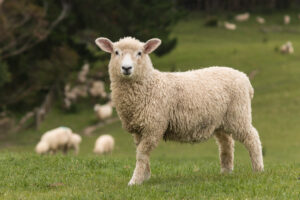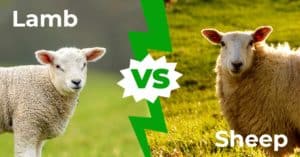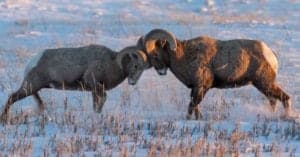Many of us have tried counting sheep to fall asleep, but could you imagine owning a real flock of sheep? Sheep are gentle animals that are generally docile and easy to handle. This can mean that sheep make good pets — for some people.
Do Sheep Make Good Pets?
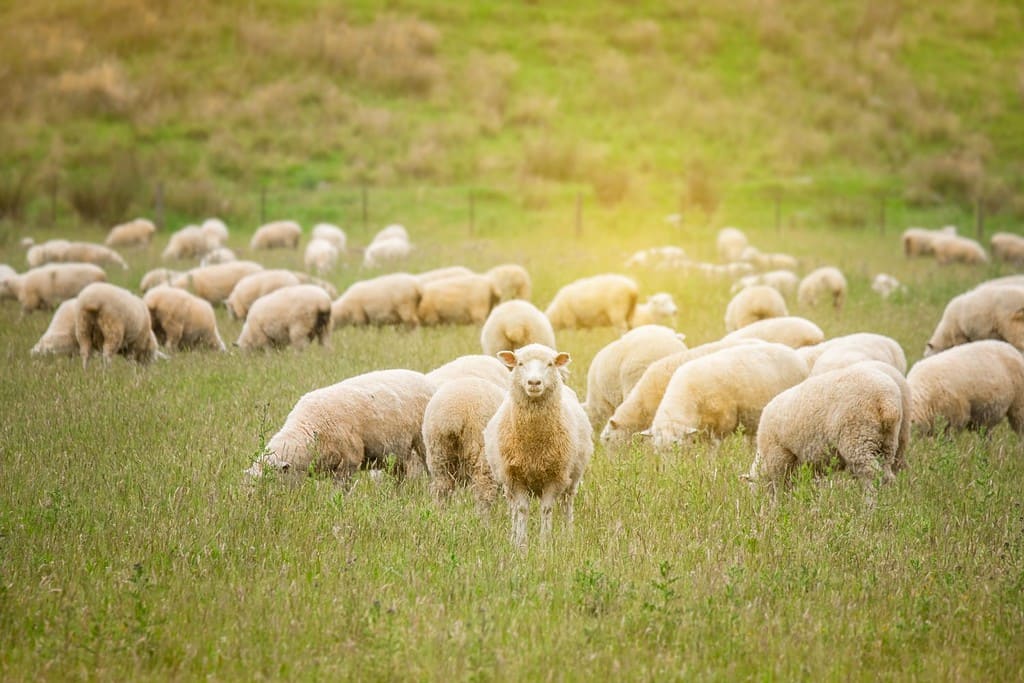
Sheep are docile animals that can make good pets, particularly for children.
©Klanarong Chitmung/Shutterstock.com
While most people consider sheep farm animals, they can also be great companion animals. Sheep are one of the oldest domesticated animals and have been living alongside people for ages. This has made them incredibly docile, and they are generally not skittish around people they know. Sheep like attention and love getting scratched, particularly on their chins, necks, and chests. Once they get comfortable, many sheep will approach their owners to request scratches and pets.
Sheep can make good family pets because they are so gentle. This makes them good companion animals for children. Sheep are also intelligent animals that can be trained. Bottle-fed lambs can even be housetrained.
So, is it a good idea to add a sheep to your family? Here are five things to know before making a decision:
1. Sheep Are Herd Animals
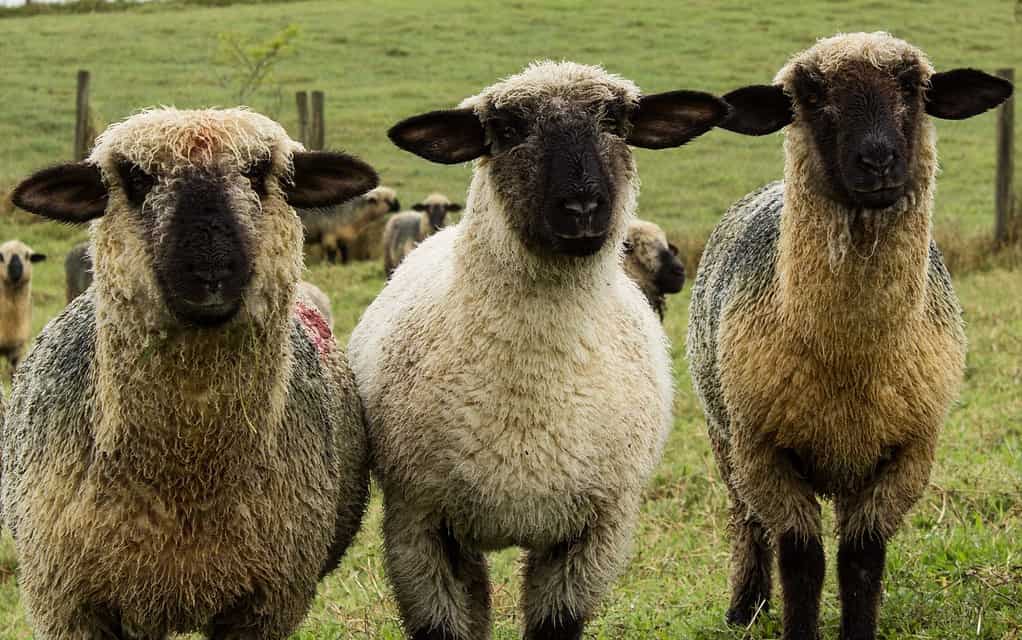
The Hampshire Down breed is one of the largest breeds of sheep and is native to the U.K.
©Leandro Redmerski/Shutterstock.com
You’ve probably seen large herds of sheep roaming countryside hills. While farmers keep big flocks for wool, meat, or milk production, this isn’t the only reason for having more than one sheep. Sheep are herd animals and are most comfortable in groups. If you want to get a sheep as a pet, you should plan on getting at least three. Research has found that being in groups of less than three can cause tremendous stress for sheep. This can affect their health and quality of life.
Some sheep that were raised exclusively by people and bottle-fed don’t have such a strong herd mentality, but it is better to assume that a sheep will need company.
2. Sheep Require Space
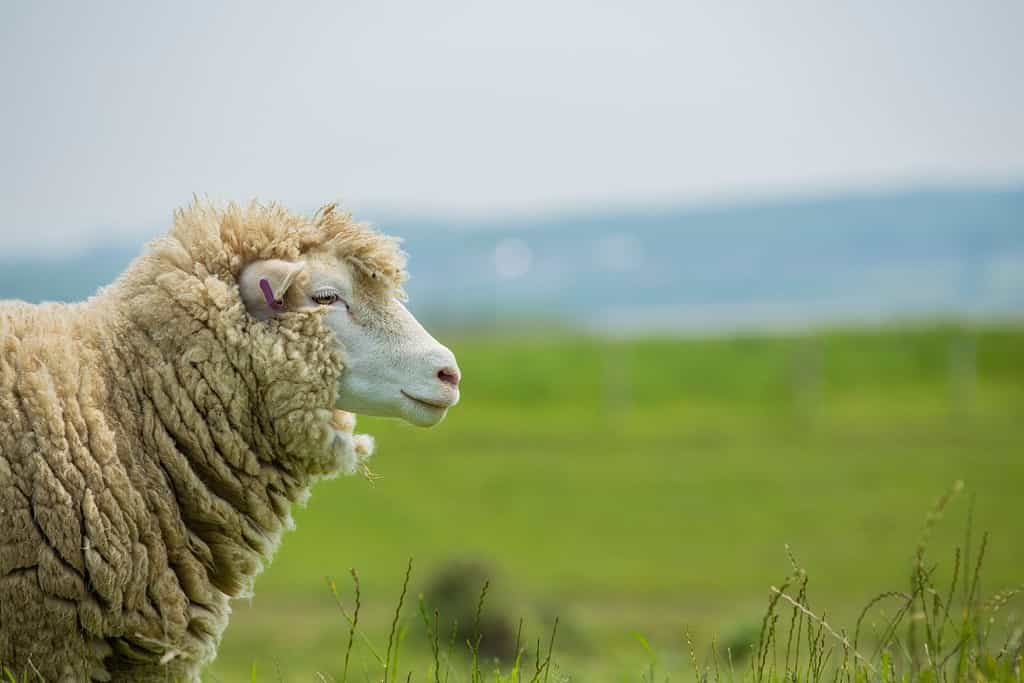
Sheep require lots of space to provide enough grazing land.
©raymond orton/Shutterstock.com
Because you will need at least three sheep (and ideally, more), you need to ensure you have enough space to keep them. How much land you need depends on several factors, including rainfall, grass growth, and soil quality, which can all affect the amount of food the sheep graze on. However, a good rule of thumb is to have an acre for every two to six sheep. You can keep up to 100 sheep on about 30 acres of pasture, assuming the soil quality is adequate.
Keeping sheep contained — and safe —is another concern. Sheep are prey animals, so their pastures must be secure, and housing must be able to keep out predators such as dogs. A flock of sheep requires a fence at least 4 feet tall, completely surrounding the pasture area to properly contain them. Wire fences with seven or eight wires can be effective at keeping sheep in and predators out.
3. They Can Get Big
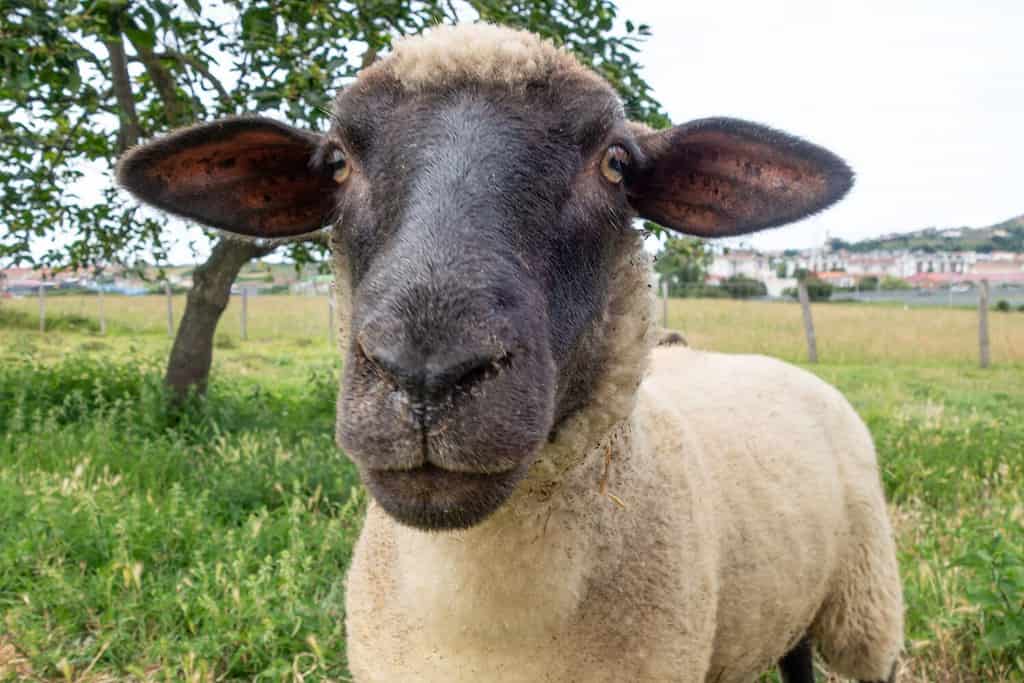
Suffolk sheep are a large breed and can weigh as much as a pony.
©ENRIQUE ALAEZ PEREZ/Shutterstock.com
While size varies by breed, sheep can get large. Male sheep (rams) weigh 100-350 pounds, and female sheep (ewes) can be 100-220 pounds. The tallest sheep ever measured was a Suffolk ram that measured 43 inches tall. Suffolks are one of the largest sheep breeds and rams can weigh up to 400 pounds. This is around the same weight as a Welsh pony.
There are “miniature” sheep breeds such as the Ouessant (also known as the Breton Dwarf). These sheep measure just 19 inches at the shoulder. It’s important to do your research on sheep breeds before getting one, particularly if you are buying a lamb that has not yet reached full size.
4. Different Breeds Require Different Upkeep
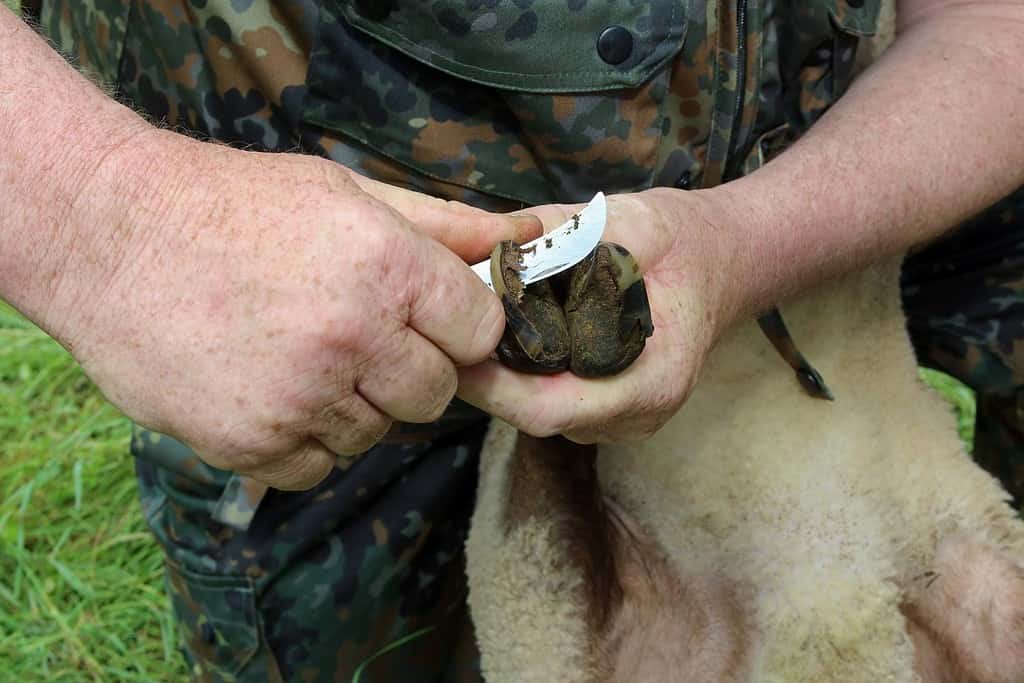
It is important to take into account the upkeep required for a sheep before getting one.
©Norman Krauss/Shutterstock.com
Sheep are known for their wool, but not all sheep have it! While 90 percent of the world’s sheep have wool, some sheep, called “hair sheep” do not. A wool sheep can produce two to 30 pounds of wool a year and must be sheared once yearly. Hair sheep do not require shearing. Hair sheep are usually found in tropical climates where wool is unnecessary for them to keep warm. Ninety percent of hair sheep live in Africa, with the remaining 10 percent in the Caribbean and Latin America.
In addition to shearing, sheep also need to have their hooves trimmed. Hoof trimming happens one to two times per year depending on the environment, growth speed, and the sheep’s nutrition. Overgrown hooves can make it difficult for sheep to walk and can cause foot and leg injuries, along with joint and ligament problems. You’ll also need to procure regular veterinary care with a veterinarian that specializes in livestock.
Sheep make good pets, but only if you are willing to put in the maintenance and upkeep to ensure they are happy and healthy.
5. Zoning Laws May Not Allow Sheep as Pets
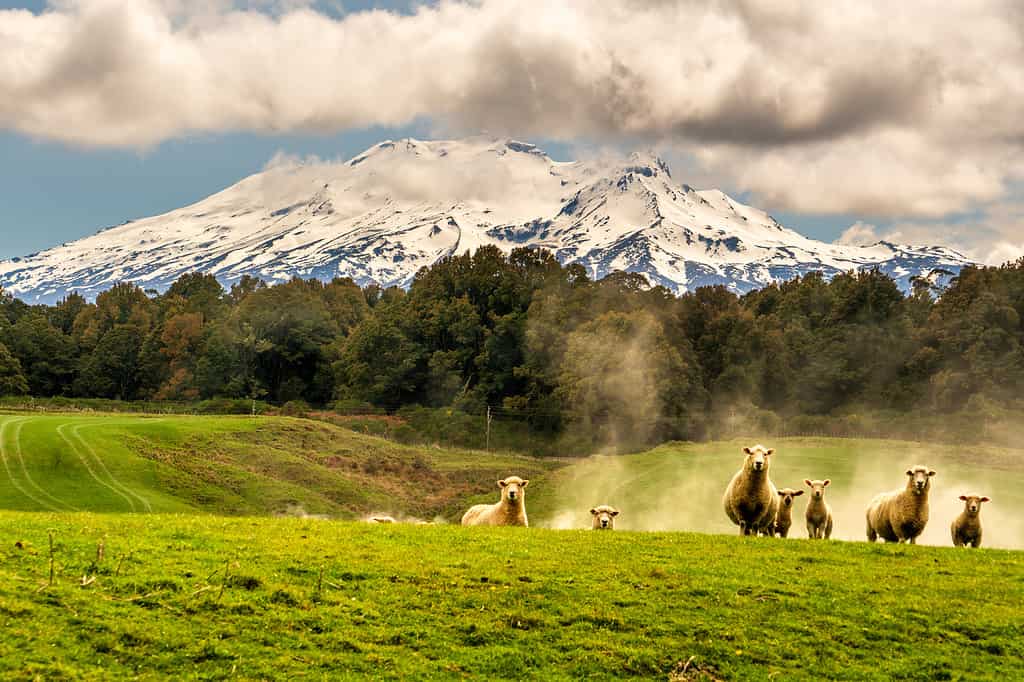
Many urban and suburban areas do not allow sheep.
©Stewart Watson/iStock via Getty Images
Even if you have the land and commitment to keep a sheep as a pet, your city may not allow it. In many residential areas, it is unlawful to keep sheep or other livestock. Other cities may have lot size requirements before you are allowed to have sheep. Be sure to check your local zoning laws to see if it is legal for you to own sheep in your town.
The photo featured at the top of this post is © Halfpoint/iStock via Getty Images
Thank you for reading! Have some feedback for us? Contact the AZ Animals editorial team.




